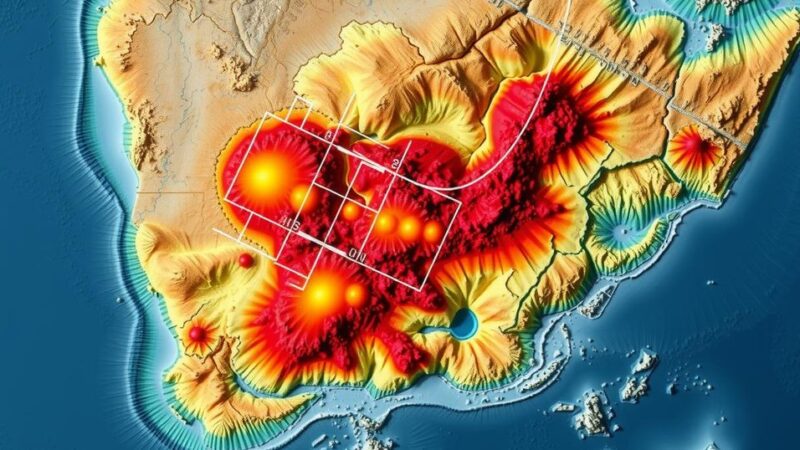Peter Schwartzstein’s book, “The Heat and the Fury: On the Frontlines of Climate Violence,” explores the significant link between climate change and conflict. He presents various global case studies illustrating how environmental degradation drives violence, particularly in poorer regions, while also affecting wealthier areas. Schwartzstein concludes that the connection between climate change and conflict is heavily underestimated due to the complex interplay of various socio-political factors.
In his recent publication, “The Heat and the Fury: On the Frontlines of Climate Violence,” journalist Peter Schwartzstein meticulously examines the intricate relationship between climate change and conflict. His exploration reveals alarming trends spanning the globe, from the emergence of pirates in Bangladesh motivated by agricultural hardship to the recruitment tactics employed by jihadist groups in Iraq leveraging drought-related despair. While Schwartzstein emphasizes that the adverse impacts of climate change on conflict are predominantly observed in underprivileged regions, he asserts that wealthier nations, including parts of North America and Europe, are increasingly facing these challenges as well. One of the central conclusions of Schwartzstein’s work is that the extent of violence exacerbated by climate change is frequently underestimated, largely due to a lack of comprehensive analysis regarding the interplay of climate-related factors with corruption, inequality, and misinformation.
Climate change is a pressing global issue that influences various socio-political dynamics. The direct effects of rising temperatures, extreme weather events, and shifting agricultural patterns can exacerbate existing vulnerabilities in societies, particularly in impoverished regions. Schwartzstein’s work sheds light on how these environmental changes act as catalysts for conflict, illustrating the complex nature of climate-induced violence. By focusing on real-world examples, his narrative underscores the urgency of acknowledging climate change not merely as an environmental challenge but as a significant instigator of violence and instability.
Peter Schwartzstein’s “The Heat and the Fury” provides crucial insights into the often-overlooked connection between climate change and conflict. His research highlights the imperative to reassess our understanding of violence in the context of environmental degradation. As both developing and developed nations grapple with the implications of climate upheaval, it becomes increasingly vital to address the intertwined issues of climate, corruption, inequality, and social stability to mitigate future conflicts.
Original Source: www.france24.com







